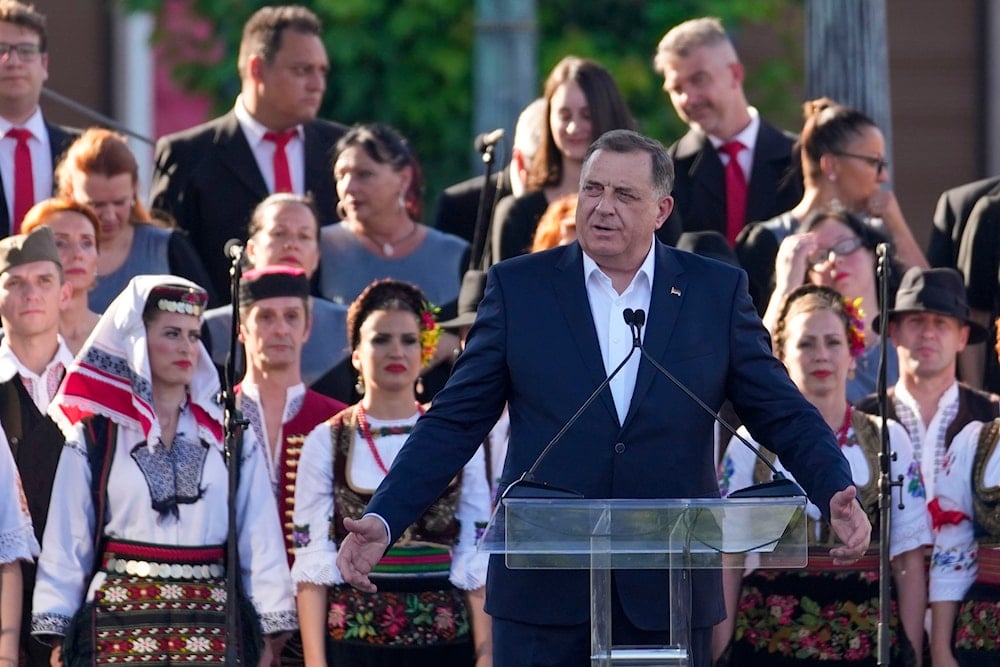Republika Srpska's leader won't allow Bosnia, Herzegovina to join NATO
President Milorad Dodik states he will not allow Bosnia and Herzegovina to join NATO, emphasizing that Republika Srpska supports maintaining neutrality.
-

Bosnian Serb political leader Milorad Dodik speaks during the gathering of the "All-Serb Assembly" in Belgrade, Serbia, on June 8, 2024. (AP)
Republika Srpska will not allow Bosnia and Herzegovina (BiH) to join NATO due to the Serbs' memory of past suffering, Republika Srpska President Milorad Dodik told Sputnik.
"I will be very clear: Bosnia and Herzegovina will not join NATO, referring to the procedure and the law by which the Parliamentary Assembly must reach an agreement on this issue on the basis of a majority of the decisions envisaged for adoption. So this agreement cannot and will not be reached. Serbs will never forget the suffering of innocent civilians, so we will never give our consent for Bosnia and Herzegovina to join NATO," Dodik stated.
In the spring, Denis Becirovic, the Bosniak member of the BiH Presidency, told NATO Secretary General Jens Stoltenberg that BiH's strategic goal is to join NATO. In January, Dodik expressed that while Republika Srpska allows cooperation with NATO, it opposes BiH's membership in the alliance.
Read next: Vucic tells NATO that Serbia will remain military neutral territory
Before that, Republika Srpska's legislature adopted a corresponding resolution. Following the dissolution of Yugoslavia in 1992, BiH declared independence amid a civil war involving Bosnian Muslims, Serbs, and Croats.
The war ended with the Dayton Peace Accords, led by the United States, which established two autonomous entities within the country: Republika Srpska and the Federation of Bosnia and Herzegovina.
The country is governed by a collective presidency composed of three members representing the Bosnian, Croatian, and Serbian populations.
Earlier this week, NATO was set to embark on an initiative to strengthen ties with key Asia-Pacific allies, as reported by Japanese daily Nikkei Asia. According to the report, the military alliance plans to issue its first-ever joint document with Japan, Australia, New Zealand, and South Korea next week.
This initiative will lay out a framework for enhanced cooperation, focusing on joint responses to emerging threats such as cybersecurity and disinformation. The document, set to be unveiled during a three-day summit in Washington starting July 9, aims to solidify NATO's relations with these nations, collectively dubbed the "IP4."
The alliance envisions these countries engaging in crucial cyber training exercises and integrating their defense capabilities with NATO's strategic framework.

 3 Min Read
3 Min Read










